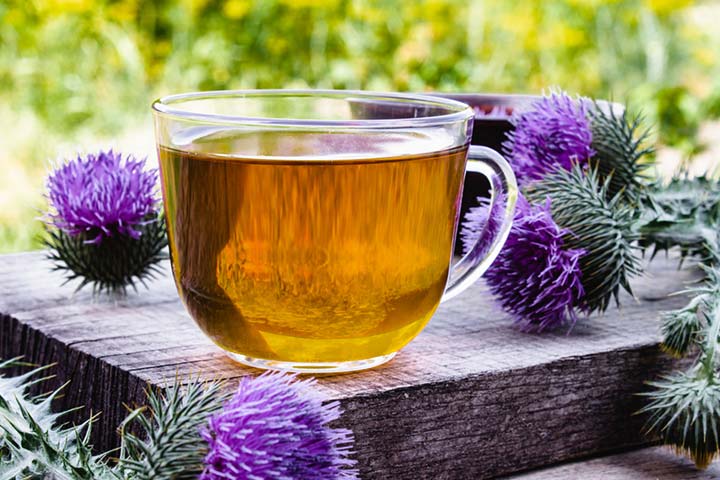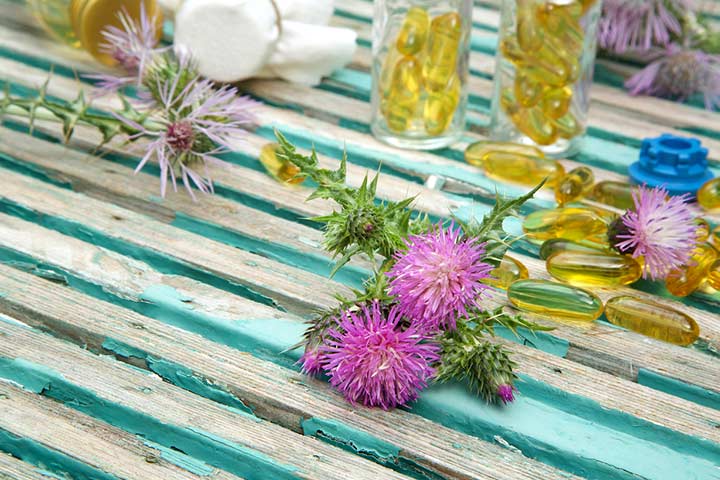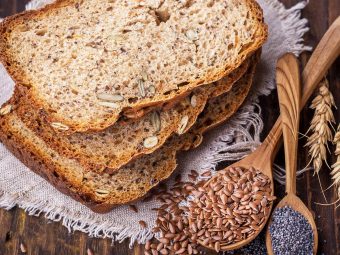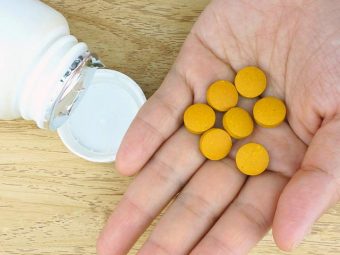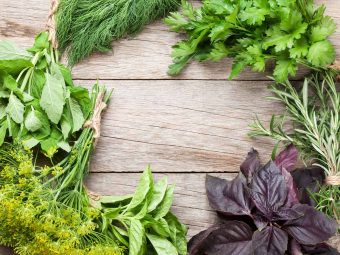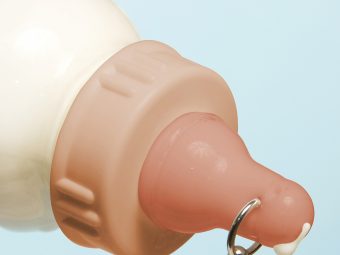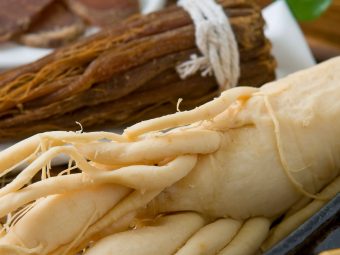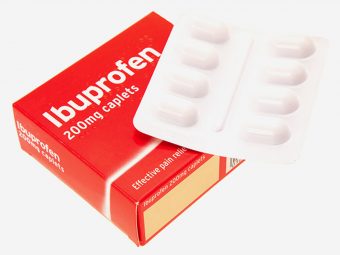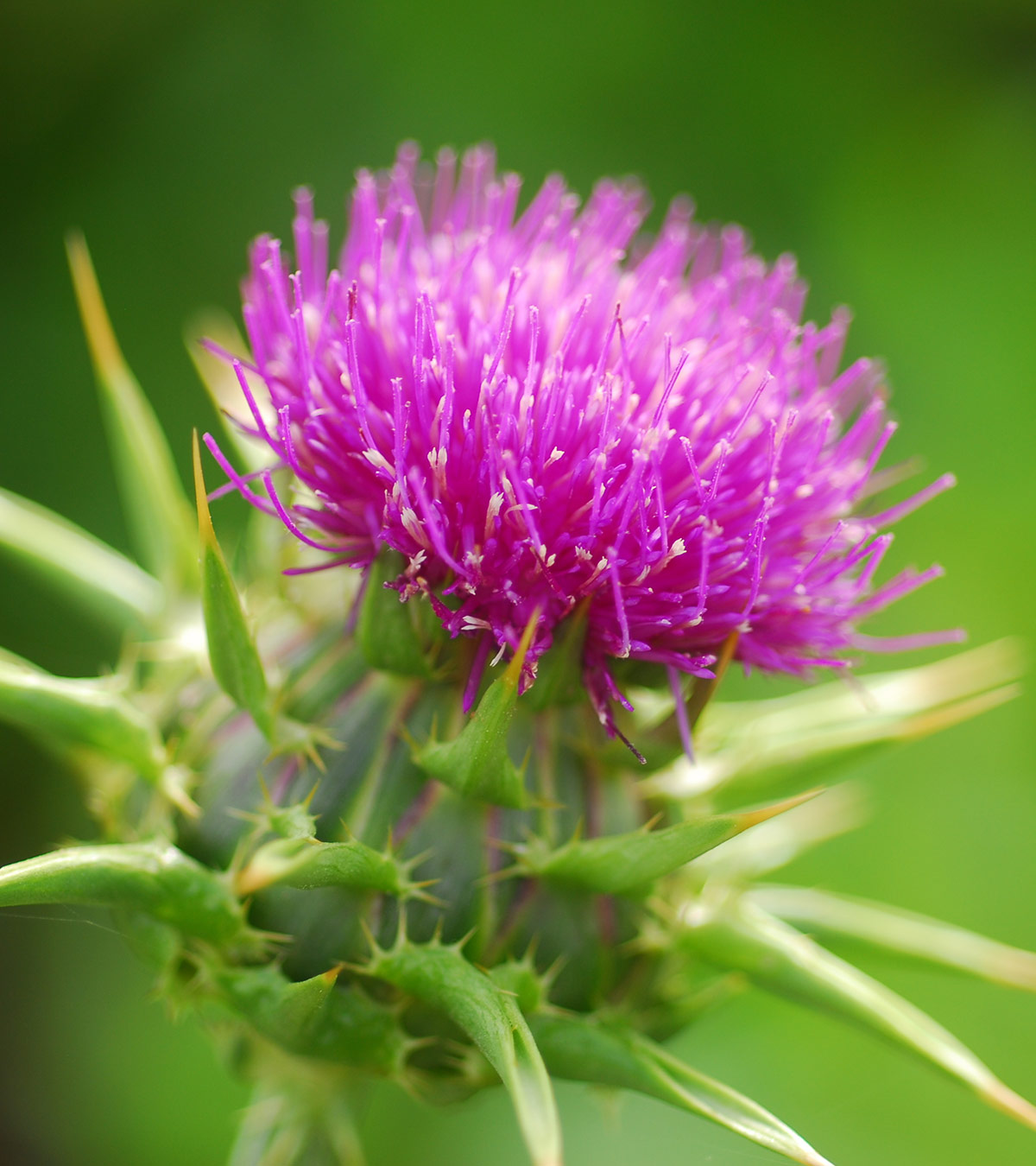
Image: Shutterstock
Experts suggest breastfeeding as the best method for providing for the nutritional requirements of newborns (1). However, some mothers may face the problem of insufficient milk production. Though formula milk may be used in such cases, using plants such as the milk thistle herb during breastfeeding may help improve lactation. Though the use of milk thistle extract to increase milk production is not clinically proven, it has been an age-old remedy and is used as an ingredient in some products marketed for the said purpose (2). Read on to know more about potential milk thistle benefits, side effects, and precautions when used during breastfeeding.
What Is Milk Thistle?
Milk thistle is a flowering herb found mostly in the Mediterranean. It contains antioxidant Silymarin, which is the most active ingredient in the herb.
Milk thistle is not a recent discovery. Greeks and Romans used this wonder herb to treat a plethora of ailments, including liver and gallbladder issues. The herb is also known to help deal with hepatitis, jaundice, and diabetes (3).
Milk Thistle For Breastfeeding
Milk thistle was also used as a natural lactation aid to increase the supply of breast milk in ancient times. But today, it is not widely used.
Unfortunately, there are not many scientific studies that can confirm the much-touted breast milk related benefits of milk thistle. The only study that one can count on was done on female rats, which demonstrated that milk thistle, along with other herbal galactagogues might increase breast milk production (4). Interestingly, a limited group study done in Peru did indicate that women taking milk thistle supplements are more likely to produce larger amounts of breast milk (2).
Is Milk Thistle Safe While Breastfeeding?
Milk thistle is a relatively safe herb to use in moderation during breastfeeding. If you are a nursing mother, you can consult your doctor before using milk thistle supplement to help improve lactation.
Latavia Norris, a mother of three, shares her experience using milk thistle to boost her milk production. She says, “Breastfeeding was the hardest thing for me with having babies. I just could not produce a lot of breast milk for my babies. I would probably make it about three months, and everything would stop. So, with my third one, I started taking a lot of herbs to help my milk production, and I took one with milk thistle in, which helped a lot. The only thing was that it (breast milk) started to smell slightly differently, and my baby did not like it. But I know that milk thistle boosts milk production (i).”
As the herb is not toxic, it is safe for mothers who breastfeed. But it can cause some side effects and has several drawbacks too (2).
1. Adulteration:
As the production and supply of herbs are not regulated, there is a possibility of the product getting adulterated. These products may be harmless in most cases but in some instances, they cause an adverse reaction. Always read the label before you buy milk thistle or related products.
2. Allergies:
If you are allergic to daisies, artichokes, common thistle, or kiwi, chances are high of you being allergic to milk thistle too. Many people experience allergic reactions such as rashes, diarrhea, and prophylactic shock as a result of milk thistle consumption.
3. Counter-indications:
Taking milk thistle while nursing can reduce the effectiveness of several drugs, so it is important to discuss your entire medical history before you start taking the herb (5).
4. Constipation:
Several women experience digestive issues such as constipation due to milk thistle supplements (3).
5. Others:
Milk thistle is also known to cause several other side effects, including (6):
- Bloating, gas, dizziness
- Blood clots
- Decreased platelets
- Eczema
- Elevated liver enzymes
- Sexual dysfunction
- Low blood sugar levels
The list of side effects may seem endless, but they are very rare. So, don’t let this list scare you. Instead, use the opportunity to discuss the possibility of using milk thistle while breastfeeding, with your doctor.
Correct Dosage of Milk Thistle During Breastfeeding
It is normal to feel anxious about everything you consume when you are breastfeeding. Everything you eat can directly or indirectly impact your child! Hence, consulting with a healthcare provider is important before using milk thistle for breastfeeding mothers.
How To Use Milk Thistle For Breastfeeding
The best part about natural herbs is that they are versatile and can be used in different ways. Here are some ways you can use milk thistle to improve your breast milk supply:
- Tea: You can try and make some herbal milk thistle tea using the milk thistle seeds! All you need to do is crush one teaspoon of seeds (you can also use ground or chopped seeds) and add it to about 240ml boiling water. Let the concoction steep for about 15 minutes. You can consume this tea two to three times every day for best results.
- Capsules: Capsules are the most popular way of consuming milk thistle. As mentioned earlier, you should talk to your doctor about the correct dosage.
- Food: Milk thistle is popular for its seeds, but not many know that you can consume the entire plant after removing its spine! You can make tea with the seeds, eat the leaves raw or make some yummy curry with it, and the buds too can give you amazing results!
- Supplements: Milk thistle is also commonly found in nursing teas and is also commercially available as a lactation supplement or nursing supplement.
For best results, you should consume milk thistle along with other lactation inducing herbs like fenugreek and fennel.
Milk Thistle Vs Blessed Thistle
Many women get confused with these two seemingly similar herbs.
While milk thistle increases milk supply and also cleanses your liver, blessed thistle is also a popular option among new moms and is known to boost milk supply (7). All herbs might not always do good. Hence, it is always better to consult an expert before you start taking a breastfeeding supplement. Though it is tempting for new mothers to try products that claim to boost supply, at times they can lead to adverse effects.
Frequently Asked Questions
1. Does milk thistle dry up breast milk?
No. Instead, breastfeeding mothers have traditionally used milk thistle supplement as a galactagogue to increase breast milk production (8). However, current guidelines advise against using milk thistle in pregnant or breastfeeding women (5).
2. Does milk thistle increase breast size?
Milk thistle may increase the production of the milk-producing hormone prolactin (8), which may stimulate breast growth (9).
3. How does milk thistle interact with other medications commonly used during breastfeeding?
Milk thistle may interact with medications commonly used during breastfeeding. It can interfere with antipsychotics, phenytoin, halothane, birth control pills, allergy drugs, drugs for high cholesterol, anti-anxiety drugs, blood thinners, cancer drugs, and drugs broken down by the liver. Consult your doctor before using milk thistle (5).
4. Can milk thistle help with postpartum recovery and healing in breastfeeding mothers?
There is limited scientific evidence on the specific benefits of milk thistle for postpartum recovery and healing in breastfeeding mothers. It is advisable to consult a healthcare professional before using any milk thistle supplements while breastfeeding.
5. Can milk thistle be used to support overall immune function in breastfeeding mothers?
Yes, milk thistle (silymarin) has been shown to have immunomodulatory effects, stimulating and suppressing the immune system. It exhibits anti-inflammatory properties, attenuates autoimmune and allergic diseases, and shows the potential to protect against cancer and immune-mediated conditions. However, further research is needed on its use in breastfeeding mothers (10).
In the past, milk thistle for breastfeeding may have been used to boost breastmilk supply. However, because there is no scientific evidence for its effectiveness, it is best not to rely on other people’s recommendations. Although the herb is used in some of the present breast milk increasing products and herbal products may seem a safer option to increase breastmilk supply, consult your doctor to avoid unwanted outcomes. You may drink it with your tea, add it to your food or take milk thistle for breastfeeding as supplements once your doctor deems it safe. Your doctor can help you with the correct dosage to take to prevent possible mild side effects such as gassiness, allergies, or eczema.
Infographic: Side Effects Of Using Milk Thistle During Breastfeeding
Milk Thistle and its supplements are used as galactagogues by breastfeeding mothers. However, its use may be associated with a few untoward effects. The infographic below presents the possible side effects of consuming this herb in lactating women. Illustration: Momjunction Design Team
Key Pointers
- Milk thistle has been traditionally used to improve lactation during breastfeeding.
- It is a safe herb when used moderately and can be taken during pregnancy.
- However, it can cause side effects such as allergies, counter-indications, constipation, and adulteration.
- You can consume milk thistle in various forms, such as tea, capsules, supplements, or food.
- Consult with your healthcare provider before taking any herbal supplements while breastfeeding or pregnant.

Image: Stable Diffusion/MomJunction Design Team
Personal Experience: Source
MomJunction articles include first-hand experiences to provide you with better insights through real-life narratives. Here are the sources of personal accounts referenced in this article.
i. Herbs: Why I take milk thistle (liver detox, boost breast milk production & much more!).https://youtu.be/hTBJ-9Cdfqc
References
- Recommendations and Benefits, Breastfeeding.
https://www.cdc.gov/nutrition/infantandtoddlernutrition/breastfeeding/recommendations-benefits.html#:~:text=Breastfeeding%20is%20good%20for%20both - Milk Thistle.
https://www.ncbi.nlm.nih.gov/books/NBK501771/ - Milk Thistle.
https://www.nccih.nih.gov/health/milk-thistle - Haibin Liu et al.; (2015); An Herbal Galactagogue Mixture Increases Milk Production and Aquaporin Protein Expression in the Mammary Glands of Lactating Rats.
https://www.hindawi.com/journals/ecam/2015/760585/ - Milk thistle.
https://www.mountsinai.org/health-library/herb/milk-thistle - C Mulrow et al.; (2000); 21 Milk Thistle: Effects on Liver Disease and Cirrhosis and Clinical Adverse Effects: Summary.
https://www.ncbi.nlm.nih.gov/books/NBK11896/ - Blessed Thistle.
https://www.ncbi.nlm.nih.gov/books/NBK501775/ - Raffaele Capasso; (2014); Effect of Silitidil, a Standardized Extract of Milk Thistle, on the Serum Prolactin Levels in Female Rats.
https://journals.sagepub.com/doi/pdf/10.1177/1934578X1400900715 - Mustafa Al-Chalabi et al.; (2021); Physiology, Prolactin.
https://www.ncbi.nlm.nih.gov/books/NBK507829/ - Nafiseh Esmaeil et al.; (2017); Silymarin impacts on immune system as an immunomodulator: One key for many locks
https://pubmed.ncbi.nlm.nih.gov/28672215/








